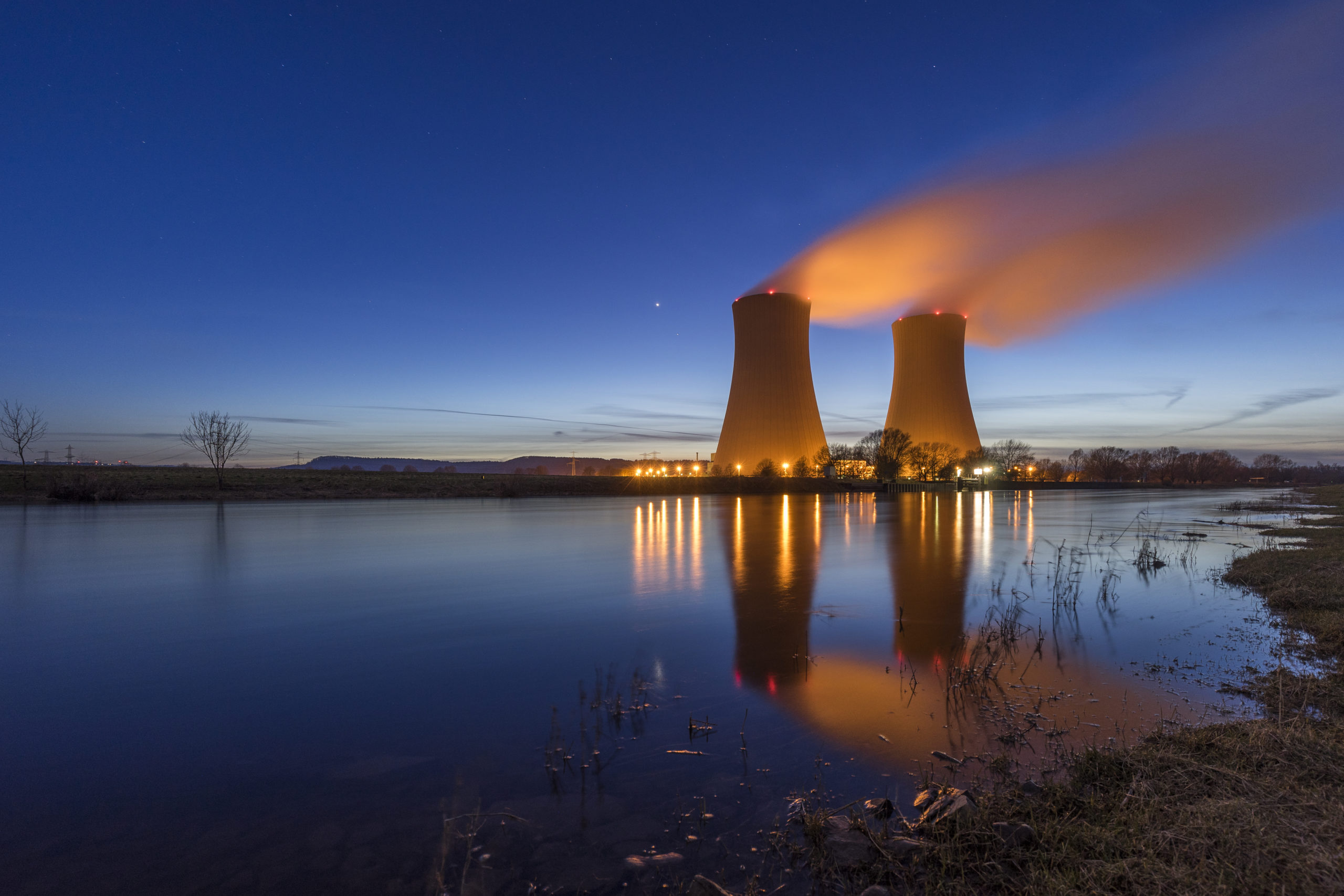The U.S. government must come clean on energy goals and incentives.
Saving the Environment from Environmentalists

Can we protect the planet without kneecapping the economy?
To any sensible person, contemporary environmentalism is so off-putting, misanthropic, left-ideological, know-nothing, anti-scientific, economically ignorant, and fiscally wasteful that any proposal for a “conservative environmentalism” sounds beyond oxymoronic. But perhaps we ought to borrow and apply the underlying wisdom of an old joke: the problem with socialism is socialism, while the problem with capitalism is capitalists. Likewise, the problem with environmentalism is environmentalists.
The environment is actually too important to be left to environmentalists. They make a mess of things by working from a stale and often counterproductive playbook: more bureaucracy, more political control over people and resources, and endless costly lawsuits. The environmentalist movement and the regulation it spawns arguably retards environmental improvement and remediation throughout the world.
Modern environmental regulation is the most expensive species of regulation, routinely imposing billion-dollar solutions to million-dollar problems. The only resource environmentalists think is unlimited is other people’s money, not adhering to their own general principle that when you’re wasting resources you’re harming the environment in aggregate.
It may help to understand this perverse aspect of environmentalism by recognizing it as a species of radical egalitarianism, as the political scientist Aaron Wildavsky never tired of arguing, in which the environment is actually a secondary concern. (Or as Roger Scruton put it, “Radical egalitarians are not satisfied with a policy that does not have a world-transforming character.”) A supreme irony emerges from this: environmentalists constitute the largest obstacle to dealing with changing climate patterns from whatever cause. The more severe you think those changes may be in future decades, the more you should be dissatisfied with the climate policy regime environmentalists have demanded.
If contemporary environmentalism weren’t so retrograde, it would be an easy and natural conservative issue. Note the obvious overlap between “conservative” and “conservation” (with the caveat that “conservationism” and “environmentalism” are not identical). William F. Buckley’s famous mission statement for modern conservatism—“To stand athwart history yelling Stop, at a time when no one is inclined to do so, or to have much patience with those who so urge it”—could almost be the mission statement of Greenpeace, or Earth First.
Both conservatism and environmentalism are powerless to stop progress in its tracks; hence both derive much of their imagination from an aggrieved perception of the tragic sense of life—except that left-environmentalists persist in the utopian fallacy that we can, through our own willful effort, achieve a world without tragic outcomes.
“Conservatism,” Scruton reminds us in his extended treatment of the subject (How To Think Seriously About the Planet: The Case for an Environmental Conservatism), “means the maintenance of the social ecology,” which ought to be easily extended to physical ecology: “Conservatism and conservation are two aspects of a single long-term policy, which is that of husbanding resources and ensuring their renewal…. It always surprises me that so few environmentalists seem to see this.”
This was once a more widespread view among conservatives. Back in 1970, National Review editorialized that “it would be political suicide to concede [the environment] to the Left.” Although the relative rhetorical neglect of environmental issues (the actual record of GOP administrations is far better than the partisan advocacy groups will ever acknowledge) was not politically suicidal and hasn’t seriously harmed conservative electoral prospects in general, the neglect of a serious policy strategy and public messaging about the environment gives liberals a free pass on the calumny that conservatives are “anti-science” and “anti-environmental.”
Scruton offered a useful formula for thinking about how environmentalism went so wrong: it was “confiscated” by statists, which is a variation of the classic argument about the moral hazard of government action: “By confiscating risk the modern regulatory state both diminishes human resilience and expels from our social experience the one factor that is needed if future generations are to be protected from our greed, and that is the sense of responsibility—the sense that I, here, now, and answerable to others, there, then…. [P]ublic spirit has been confiscated by government, national and local.”
Thus the first disposition of a conservative environmentalist should be—take it back from these miserable, brain-dead people! The beginning of a counter-environmentalism begins with the forceful rejection of the Malthusian pessimism that has been at the core of environmentalism for decades, but which has been falsified by actual environmental progress.
By now it is incontrovertible that nations with dynamic economic growth, property rights, and technological progress have all experienced improving environmental conditions in most categories. Fortunately some environmentalists are starting to understand this, and a new strain of environmentalism known as “ecomodernism” explicitly rejects the Malthusian frame and embraces technological progress. There’s even an “Ecomodernist Manifesto” that includes sensible propositions such as:
- “Despite frequent assertions starting in the 1970s of fundamental ‘limits to growth,’ there is still remarkably little evidence that human population and economic expansion will outstrip the capacity to grow food or procure critical material resources in the foreseeable future. To the degree to which there are fixed physical boundaries to human consumption, they are so theoretical as to be functionally irrelevant.”
- “Decoupling”: the idea that human well-being can increase while environmental impact decreases—a direct rejection of the core environmental view that every additional human being, or increase in material well-being, is a net detriment to the planet, (In other words, the “population bomb” is barely a wet firecracker.) From the Manifesto:
Decoupling occurs in both relative and absolute terms. Relative decoupling means that human environmental impacts rise at a slower rate than overall economic growth. Thus, for each unit of economic output, less environmental impact (e.g., deforestation, defaunation, pollution) results. Overall impacts may still increase, just at a slower rate than would otherwise be the case. Absolute decoupling occurs when total environmental impacts—impacts in the aggregate—peak and begin to decline, even as the economy continues to grow.
- Another key heterodox thought: “Plentiful access to modern energy is an essential prerequisite for human development and for decoupling development from nature.”
Conservatives can offer some additional aspects to complement this welcome change in general outlook. First, we should embrace what Scruton calls oikophilia—love of home. In more familiar language, oikophilia means taking seriously the old bumper sticker slogan, “Think Globally, Act Locally.” With the exception of the climate and ocean pollution, most environmental issues in the 21st century are smaller or more specific (plastic bag waste, overuse of antibiotics, and watershed management, to pick just three examples), and more local in scale than the grand pronouncements of apocalyptists would suggest. These sorts of issues require specialized knowledge for their remedy rather than centralized regulatory regimes.
Sometimes large-scale solutions are necessary and appropriate to the environment: national standards for technological performance, such as automobile tailpipe standards that have cut emissions from new autos by 99%, have played an important role in improving air quality; similar performance standards for coal-fired power plants have cut sulfur dioxide emissions by 75% since 1970. But going forward, many environmental problems will require local knowledge and local action. To extend the comparison to medicine, while there is an important role for general practitioners, most progress comes from specialists.
Second, policy makers and activists alike need to have a keen sense of tradeoffs between competing approaches to solving particular problems. Conventional environmentalists hate tradeoffs, and their refusal to consider tradeoffs should be forcefully rebuked. For example, it is not clear that restricting or banning plastic shopping bags has net environmental benefits, just as research shows some forms of recycling can result in higher resource waste or the substitution of one kind of waste for another. Paper bags require more energy than plastic bags to manufacture; moreover, recycling some kinds of paper (such as newsprint) requires the heavy use of toxic chemicals and generates significant amount of waste that must be stored in hazardous waste landfills, where space is scarce.
Sometimes recycling efforts trade off one environmental waste problem for another. An especially perverse example can be seen in biofuels, especially corn-based ethanol in the United States. Corn-based ethanol may help reduce overall greenhouse gas emissions (though there is serious controversy about whether this is true) and reduce America’s reliance on imported oil, but it requires cultivating more farmland that might otherwise be available for conservation purposes (or to produce food for human consumption), uses up large amounts of water, and increases water pollution to the Mississippi River basin, aggravating hypoxia (oxygen-deprivation, known more popularly as the “dead zone”) in the Gulf of Mexico. (And don’t even get me started on the full consideration of environmental tradeoffs involved with electric vehicles.)
Above all, the experience of the last generation should have taught us that most environmental issues are heavily fact-dependent, susceptible to a range of valid and sometimes contradictory assessments, and therefore often fraught with legitimate controversy among specialists. Very often our facts are woefully incomplete (in the U.S., for example, we have no or very poor data on many important aspects of surface water quality), or there is uncertainty about causation. Our technical models of groundwater supplies and conditions, for example, are very deficient.
As with any other field of physical science or social science, such as medicine or economics, while vigorous argument and debate are essential, recourse to “values” or sentiment is insufficient to resolve disputes. Just as appeals to “social justice” do little to help find real solutions to the practical problems of poverty, so too general appeals about environmental disaster or the imperative of “environmental justice” often polarize the issues and detract from progress in finding partial answers.
There has never been a better time for conservatives to take back the environment from environmentalists. Opinion surveys show the public simply doesn’t jump to environmental alarms—even about climate change—as they did at the time of the first Earth Day more than 50 years ago. New York Times columnist Nicholas Kristof, who generally holds conventional environmental views, noted this problem in a column some time ago: “The fundamental problem, as I see it, is that environmental groups are too often alarmists. They have an awful track record, so they’ve lost credibility with the public…. But environmental alarms have been screeching for so long that, like car alarms, they are now just an irritating background noise.”
It is a fresh application of the old moral fable of the little boy crying “wolf” too often; that is, public weariness with past environmental scares that were overestimated has made it harder to gain traction for the specific and detailed new problems that have arisen. Conservatives should thus go forth confidently, and start by telling environmentalists to cease adding to noise pollution by turning off their blaring alarms.
The American Mind presents a range of perspectives. Views are writers’ own and do not necessarily represent those of The Claremont Institute.
The American Mind is a publication of the Claremont Institute, a non-profit 501(c)(3) organization, dedicated to restoring the principles of the American Founding to their rightful, preeminent authority in our national life. Interested in supporting our work? Gifts to the Claremont Institute are tax-deductible.
A case study in out-of-touch environmental regulation and its disastrous effects.
The Biden Administration is outsourcing pollution and weakening America’s energy reserves.
The Right needs a total vision overhaul on energy.
E.U. energy mandates impose needless suffering in the name of elite fantasy.





